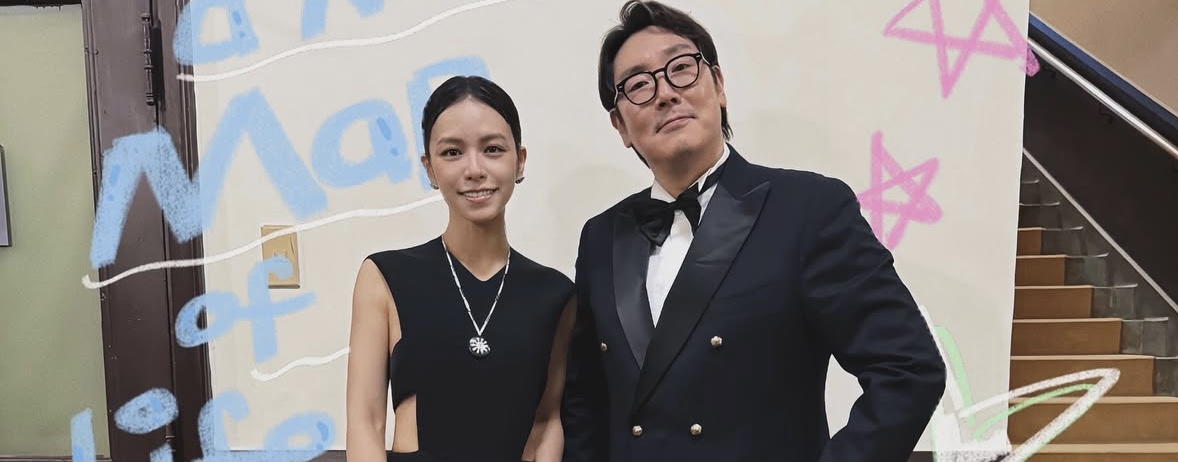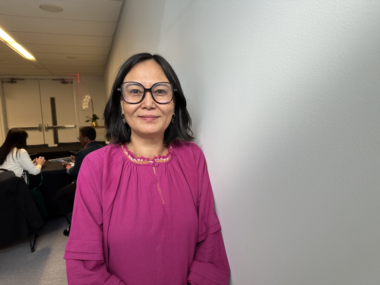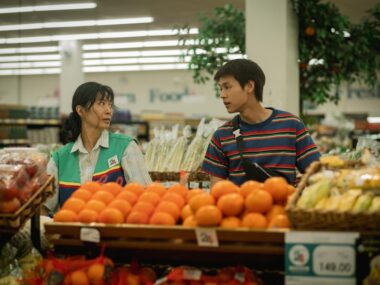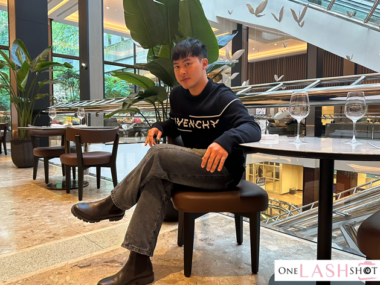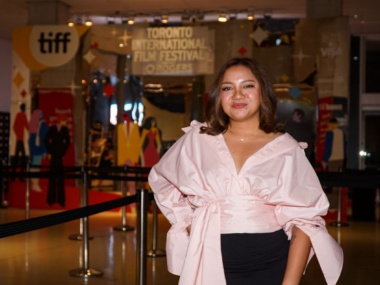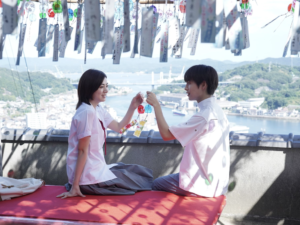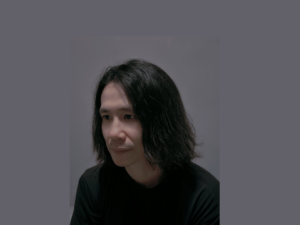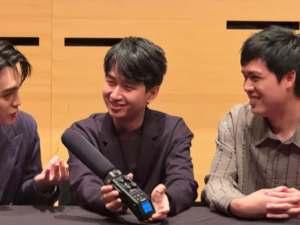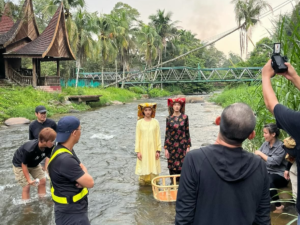In this edition of NYAFF, Vivian Sung takes home the Best from the East Award for Outstanding Performance. From her beginnings in short films and music videos, Vivian Sung quickly made her mark, debuting as the lead in Café. Waiting. Love (2014). Her career skyrocketed with her role in the massive box office success Our Times (2015), earning her a Golden Horse Award nomination for Best Actress. With her magnetic presence on screen, Vivian has since become a cornerstone of Taiwanese cinema, effortlessly captivating audiences across both film and television. Her stunning portrayal in The Secret House solidifies her place as one of the most compelling talents in contemporary film.
Korean Director Park Sang-min’s cinematic journey began with a deep passion for storytelling, majoring in film direction and crafting a series of sharp, dark comedies in his early career. Before stepping into the spotlight as a director, he honed his skills as an assistant director, gaining invaluable experience in the process. With a strong affinity for genre-bending films, particularly those with a live-format twist, Park co-wrote Gonjiam: Haunted Asylum (2018), a ground-breaking horror hit that captivated audiences worldwide with its bold concepts and unique structure. His directorial debut, I Haven’t Done Anything, made waves after its world premiere at the NYAFF 2022, earning invitations to numerous prestigious film festivals and cementing his place as a fresh voice in cinema.
In The Secret House, a Korean mother, burdened by a haunting secret, escapes her past with four children, seeking refuge in the remote landscapes of Taiwan. Her eldest son, Sung Min (Lee Hong-nae), is drawn into a romance with the enigmatic, yet kind Li Hua (Vivian Sung), while a relentless, shadowy realtor grows obsessed with her and begins to unravel the family’s dark history. As a ghost from their past returns to claim what was left behind, violence spirals out of control, and Sung Min is forced into a desperate fight to protect his family. This chilling re-imagining of the 2017 thriller Marrowbone delivers gripping performances, haunting visuals, and a masterfully crafted design that elevates every shocking revelation.
One Lash Shot had the chance to sit down with Director Park Sang-min and Actress Vivian Sung about their gripping collaboration in the psychological thriller The Secret House.
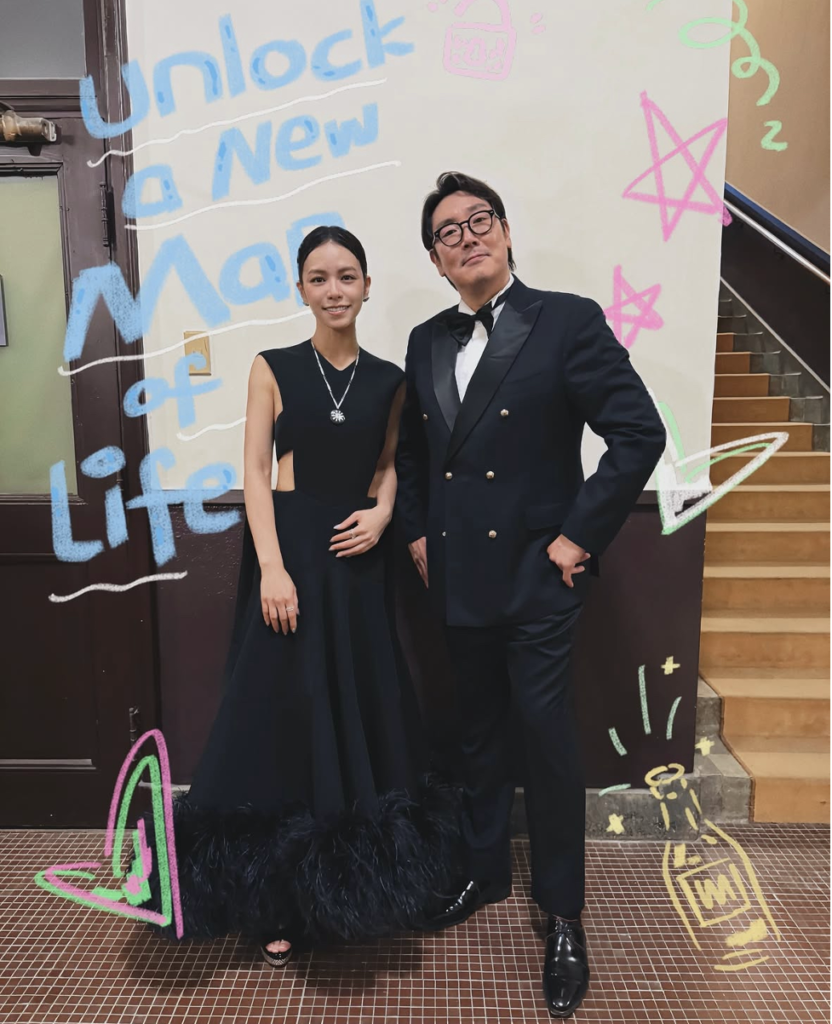
Park Sang-min, what drew you to adapt Marrowbone specifically, among all the thrillers available? I know that you have directed this kind of movie before with Gonjiam and Joh Daes Gu, but why this story?
Sang-min: The reason I chose Marrowbone is because I was attracted to the theme of the original film. I think I’m more drawn to a genre than a specific topic. So, when I got the offer, I watched the original work and really liked its theme, which made me want to remake it.
When I watch a film, rather than looking for a specific genre, what I really focus on is the message or theme of the movie. For me, the theme of this movie was very moving, and I found the characters and what the original film dealt with to be very compelling. So, when the opportunity to adapt and direct it was offered to me, I felt it would be worth remaking it as a Korean version.
Sang-min, what led to casting Vivian, a Taiwanese actress, in the role of Li Hua? And Vivian, what was your first impression when you read the script?
Sang-min: When I thought about Taiwanese actresses, Vivian was the only one that came to mind. Not only had I been a long-time fan of hers, but when I looked at her past work, I saw that she transcends all kinds of barriers—language, culture, and more. That’s why I felt so strongly about casting her. I thought she would be able to express the character of Li Hua very effectively, and she did.
Vivian: When I first read the script, I immediately watched the original American film. I believe that, while it’s a horror film, it’s more than just a genre piece. At its core, it’s about internal conflicts, emotional trauma, and that wonderful twist at the end.
I was also intrigued by how the director would adapt the film to fit the cultural and social contexts of Taiwan and Korea. To me, it was this adaptation process that really drew me in, as well as the locations in Taiwan and Korea. More importantly, throughout the film-making process, we focused a lot on the emotional side of the story and the narrative. These elements made making this particular film especially rewarding.
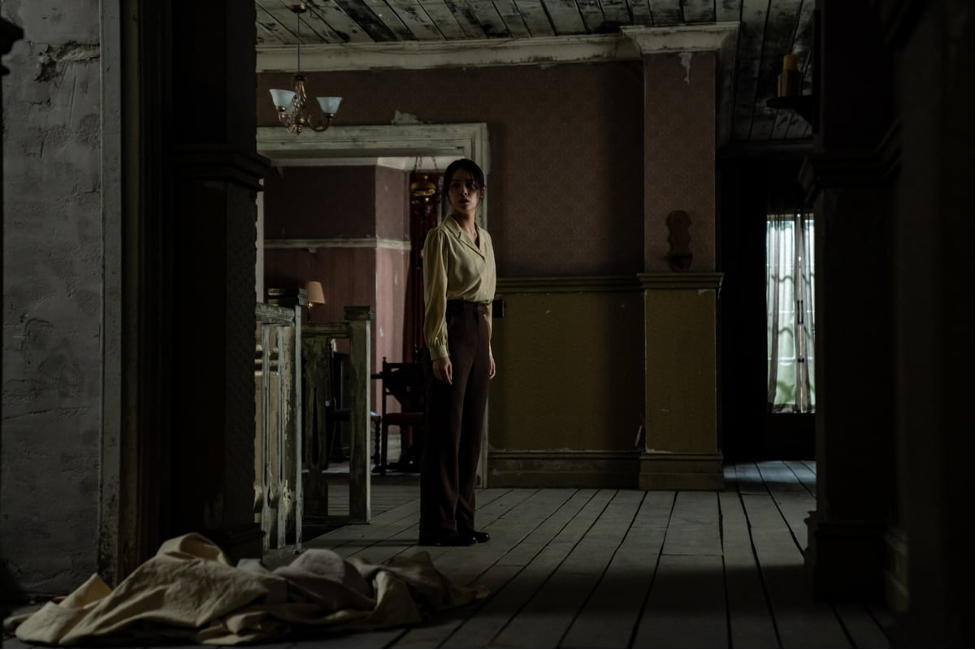
Vivian, what was it like working so closely with Lee Hong-nae on this project?
Vivian: Oh, with him… To be honest, we had a huge language barrier. Every time I had to talk to him, we had to communicate through a translator. So, in the beginning, it was a bit hard to really get to know each other. But after a few days, it was fine. Sometimes we’d just use body language to guess what the other person was saying, and most of the time, magically, we’d get it right. So, I think that’s the fun part of our dynamic.
Also, I think he’s very professional. When I worked with him, he knew his character really well. We spent a lot of time just talking about the script and the characters, even though we had to do it through a translator. But we still spent a lot of time doing that, and we ended up being like each other’s teachers—I’d teach him Chinese, and he’d teach me Korean. So, it was a very fun process.
He’s also very sweet. He knew I was really nervous at the beginning, especially when I arrived in Korea, because we shot the Korean parts first and then the Taiwanese ones. Since he knew I was nervous and a bit scared, since I’d never done a Korean film before, he really took care of me. He’s just very, very sweet.
Where was this movie shot, particularly the stunning abandoned house and the secluded forest spot where Li Hua met Sung-min for the first time?
Sang-min: The place where the siblings first meet Li Hua— we actually scouted many, many locations. There were a lot of candidates for that spot because, in the original film, it’s described and shown as a very mystical place. We wanted to capture that same mystical feel. Luckily, our Taipei crew found a café with a garden area, and there was a house within it. We thought that if we dressed it up and decorated the set with natural elements, like forest features, it would work really well—kind of a place within nature. And fortunately, I think it turned out great. It had a wonderful natural atmosphere that really benefited us.
Sang-min, what scene in the movie posed the greatest challenge for you, and how did you approach shooting it?
Sang-min: I think the most challenging scene, emotionally and psychologically, was the ending climax that we shot in Korea with Vivian. I was really concerned because it’s one of the most important scenes in the film, and we had to jump straight into filming in Korea as soon as Vivian flew in.
There was basically no time for us to build rapport, and I felt really sorry for her, having to go through that intense scene with me. But, as you’ve seen, Vivian was incredible—so professional and well-prepared—that we were able to film it really well despite the circumstances.
In terms of environmental challenges, the most difficult scenes were those we shot in the ocean in Taipei. It was extremely hot, and I think there was even an earthquake during that time, so that made things tougher. We were also shooting on a very tight schedule, so that was definitely challenging. But I do remember that after filming those scenes, the cast and crew from both Taiwan and Korea really bonded over the experience
Vivian, which scene was the most difficult for you to film, and why? How did you prepare for it? Was it the moment where you tried to snap Sang-min’s character in that tent while he was battling his multiple personalities?
Vivian: I think the scene the director just mentioned was definitely one of the hardest for me. It was the first scene I filmed when I arrived, and it also had the longest line in the whole script. But to be honest, it felt kind of strange. You know, if the hardest part is the beginning, everything else should get easier, but it didn’t (laughs).
I think every scene is important to me, so I put a lot of pressure on myself. This was also my first time working with a team that was half Chinese, half Korean, and I don’t speak any Korean. So, I spent a lot of time studying the language, trying to figure out how the tones work. When you speak Chinese, English, or Korean, the tone is different. It’s not just about the accent—it’s how you express emotions in those languages. Every language has its own culture behind it.
That was the hardest part for me. I spent a lot of time learning about Korean culture and analyzing, “Why do they react like that? Even though we’re saying the same lines, why does our tone sound so different?” That was the biggest challenge for me throughout the film.
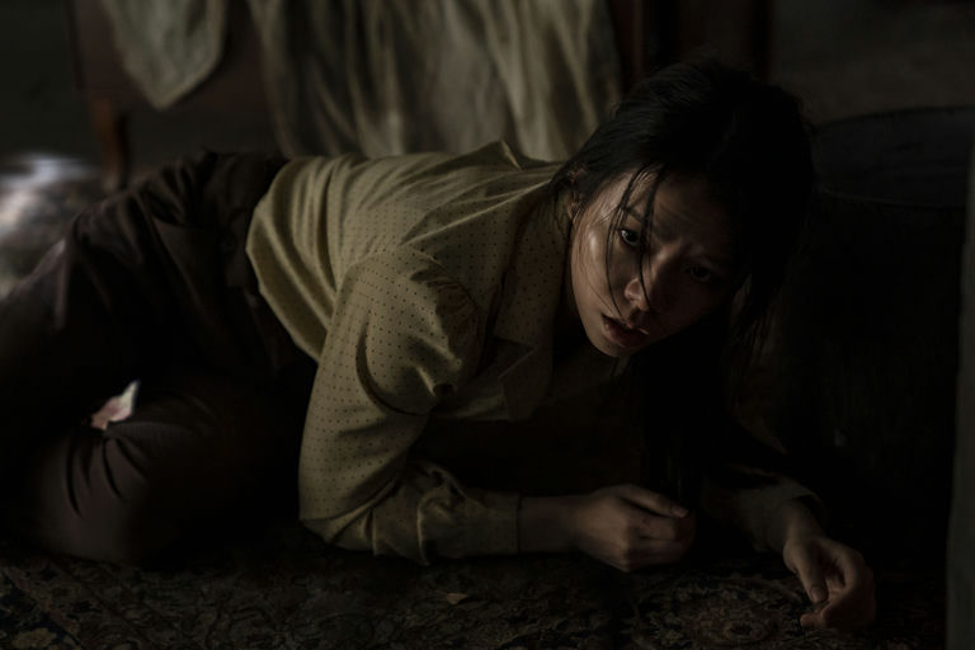
But I also really loved the scene where Sung-min’s character revealed his multiple personalities. I was so moved by that. I was really surprised and shocked by Sung-min’s performance. He’s so professional, and he made me feel like I didn’t even have to imagine anything. Both of us were fully in the moment. Even though it seemed like it would be a difficult scene when I read the script, in the end, it just felt very natural. We both just expressed ourselves in the moment.
While this is a remake, what do you believe is the core message of the film? The film deals with the theme of family, both in terms of support and trauma.
Sang-min: I think you’re absolutely right. There are many themes this film deals with, both in the original and in this remake. But if I had to encapsulate it all, I’d say it’s about breaking the cycle of violence.
There are people who succumb to that cycle and are unable to overcome it, but I think the character of Li Hua embodies the struggle to break free from it. She is constantly trying to challenge and overcome the violent cycles she’s trapped in. For me, this fits with the time period of the film, which is set in the late ’70s and early ’80s. So, I believe that’s the core message of the film.
Vivian: For me, I think Li Hua’s character really reflects the era she’s set in—the 1970s and early ’80s in Taiwan, which was a very patriarchal society. For her to have the consciousness to seek her own happiness and make her own decisions is very unconventional for that time.
Even though today, that kind of behavior might seem more common, back then it was something quite radical. For someone like her to disrupt the norm—living not for herself, but for her family, as was expected—was a huge step. She was trying to break out of that cycle, much like she was trying to disrupt the violence around her. She wanted to make her pursuit of happiness the most important thing.
To me, I think the core message of this film through Li Hua’s character is that, even though this might have been less common back then, many people today still find themselves in similar predicaments in a patriarchal society. I think her role can offer inspiration to those facing similar struggles today.
Looking back at the process, is there any scene or detail in The Secret House that you wish you’d been able to explore more deeply, but for whatever reason, it didn’t make it into the final cut?
Sang-min: I don’t think I have any. (laughs) I’m obviously joking.
Vivian: We had a lot of different scenes while we were shooting, but I saw the movie last month, and I think it turned out really well. You know, with this kind of film, it needs to make the audience feel excited, scared, or nervous. So, when I watched the movie, I felt that all the scenes were already perfect. Sometimes, as actors, we might feel like, “Oh no, where’s my scene? Where did it go?”
But honestly, as a director, I completely understand Sang-min’s perspective. It’s all about the movie as a whole. I’m just one part of it, and actors don’t represent the entire film. So, when I watched it, I understood that some smaller scenes might not have made it into the final cut. And honestly, sometimes you don’t need to include everything. It’s about showing the audience the best, most effective version.
Sang-min: Of course, there are certain scenes I wish could have made it into the final cut, especially those that delve a bit deeper into each sibling’s individual story. It would’ve been nice to include those, but I think this final version of the film is the most harmonious. There are scenes I feel would’ve added more depth, but in terms of the version the audience will see, I think this is the best one.
What’s next for both of you?
Sang-min: If Vivian’s schedule permits, I’d love to work with her anytime.
Vivian: I’m free!! But I definitely need to practice my Korean. Yeah, I need to work hard on that.
Sang-min: For my next project, I’m working on another classic horror movie.
[Author’s Note: Thank you for making this thriller remake and I can’t wait to watch you both collaborate on another project!]
